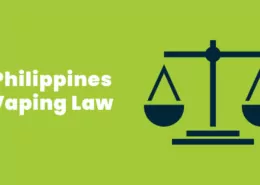Is Vaping Safe or Not? UK Government’s Dual Approach to E-Cigarettes
E-cigarettes are being promoted in England as part of the government’s efforts to help people quit smoking tobacco at the same time as it cracks down on youth vaping. We take a look at why there are two very different campaigns on the devices.
What are e-cigarettes?
There are a variety of e-cigarettes, or vapes, on sale in the UK but they generally work in a similar way: heating a liquid to produce a vapour that can then be inhaled. The liquid usually contains nicotine and chemicals including propylene glycol, vegetable glycerine and flavourings.
The use of vapes is on the rise. The majority of adults in Great Britain who vape are current and former smokers. There are concerns, however, about children using them. According to a 2022 YouGov survey carried out for the charity Action on Smoking and Health (ASH), almost 16% of 11 to 17-year-olds had tried vaping, compared with just over 11% in 2021 and almost 14% in 2020.
Are vapes safe?
That depends a bit on context. Vaping is regulated far more rigorously in the UK than in the US, where there have been concerns about lung disease and deaths associated with the liquids used in certain vapes.
The importance of e-cigarettes in helping tobacco smokers quit
E-cigarettes play a crucial role in helping tobacco smokers quit, thanks to their relative safety compared with traditional cigarettes. Tobacco smoking is the leading cause of preventable illness and death in England, killing about 65,000 people a year.
E-cigarettes often contain nicotine, but they do not produce tar or carbon monoxide, which can cause lung disease and cancer, as traditional cigarettes do. ASH also notes that vapes are a more effective quitting aid for tobacco smokers than nicotine patches or gum.
As a result, e-cigarettes play a key role in the government’s efforts to reduce smoking rates in England to 5% or less by 2030. About 5.4 million people in England, or 13% of the population, currently smoke tobacco, according to recent figures.
The risks of e-cigarettes for children and non-smokers
While e-cigarettes offer a safer alternative for smokers, they are not recommended for children and non-smokers. That’s because e-cigarettes are not completely risk-free. As the NHS notes: “The liquid and vapour contain some potentially harmful chemicals also found in cigarette smoke, but at a much lower level.”
There are also concerns that young people and non-smokers could become hooked on the devices through nicotine addiction.
What has the government announced?
The UK government intends to boost the uptake of e-cigarettes among smokers while reducing it among children. To achieve this, they have announced several initiatives:
- Swap to stop: About a million smokers in England are to be offered a free vaping starter pack in a “swap to stop” scheme. The government will provide funding, and local authorities will be able to tailor the initiative to their needs and control how they prioritise populations.
- Support for pregnant women: The government will offer vouchers and behavioural support by the end of next year to all pregnant women who smoke tobacco, in an initiative that is hoped will cut the risk of miscarriages and stillbirth and reduce the number of babies born with health problems.
- Illicit vapes enforcement squad: The government is providing £3m to create a specialised “illicit vapes enforcement squad”. The unit, led by Trading Standards, will be tasked with tackling the sale of banned vapes and underage sales.
What do experts make of the new plans?
On the whole, charities and scientists have backed the announcements, which appear to be based on some, but not all of the suggestions in the Khan review on making smoking obsolete, published last year.
Prof Peter Hajek, the director of the tobacco dependence research unit at Queen Mary University of London, welcomed the rollout of the devices for helping people to quit. “Vaping and other low-risk nicotine products have a potential to practically eradicate smoking-related death and disease,” he said. “This new step is a sensible, pragmatic and science-based initiative and good news for public health.”
He also said that while young non-smokers experimented with vaping, very few progressed to daily use, and that vaping had much lower addictive potential than cigarettes.
Alan Boobis, emeritus professor of toxicology at Imperial College London, also stressed that e-cigarettes were appreciably safer than conventional cigarettes, but that measures were needed to prevent take-up by youth. “The most recent studies support a role for vaping in helping smokers to quit, and hence I think the government’s initiative is a good idea as part of a broader range of measures to reduce the burden of ill health caused by smoking,” he said.
Conclusion
In conclusion, e-cigarettes have been shown to be a relatively safe and effective tool for helping smokers quit tobacco. While they are not completely risk-free, they are significantly safer than traditional cigarettes. The UK government’s promotion of vapes for smokers while discouraging them for youth aims to balance the potential benefits of vaping as a smoking cessation aid with the need to protect young people and non-smokers from potential harm.
FAQs
Are e-cigarettes completely safe?
No, e-cigarettes are not completely safe, but they are significantly safer than traditional cigarettes for smokers. They do not produce tar or carbon monoxide and contain fewer harmful chemicals.
Are e-cigarettes recommended for non-smokers and children?
No, e-cigarettes are not recommended for non-smokers and children, as they are not completely risk-free and can lead to nicotine addiction.
What is the government’s stance on e-cigarettes?
The UK government aims to promote e-cigarettes as a smoking cessation tool for smokers while discouraging their use among youth to protect them from potential harm.
What initiatives have been announced to support e-cigarette use for smokers?
The government has announced a “swap to stop” scheme, providing free vaping starter packs for smokers, support for pregnant women who smoke, and funding for an illicit vapes enforcement squad to tackle underage sales and banned vapes.
Do experts support the government’s initiatives on e-cigarettes?
Yes, most experts, including scientists and public health officials, support the government’s initiatives, stating that vaping can help reduce smoking-related death and disease while acknowledging the need for measures to prevent take-up by youth.
- Jersey Confirms Disposable Vape Ban from August 1st - July 3, 2025
- Smoking and Vaping in the UAE: Everything You Need to Know - July 3, 2025
- North Carolina’s Vape Product Ban Takes Effect on July 1st - July 3, 2025









